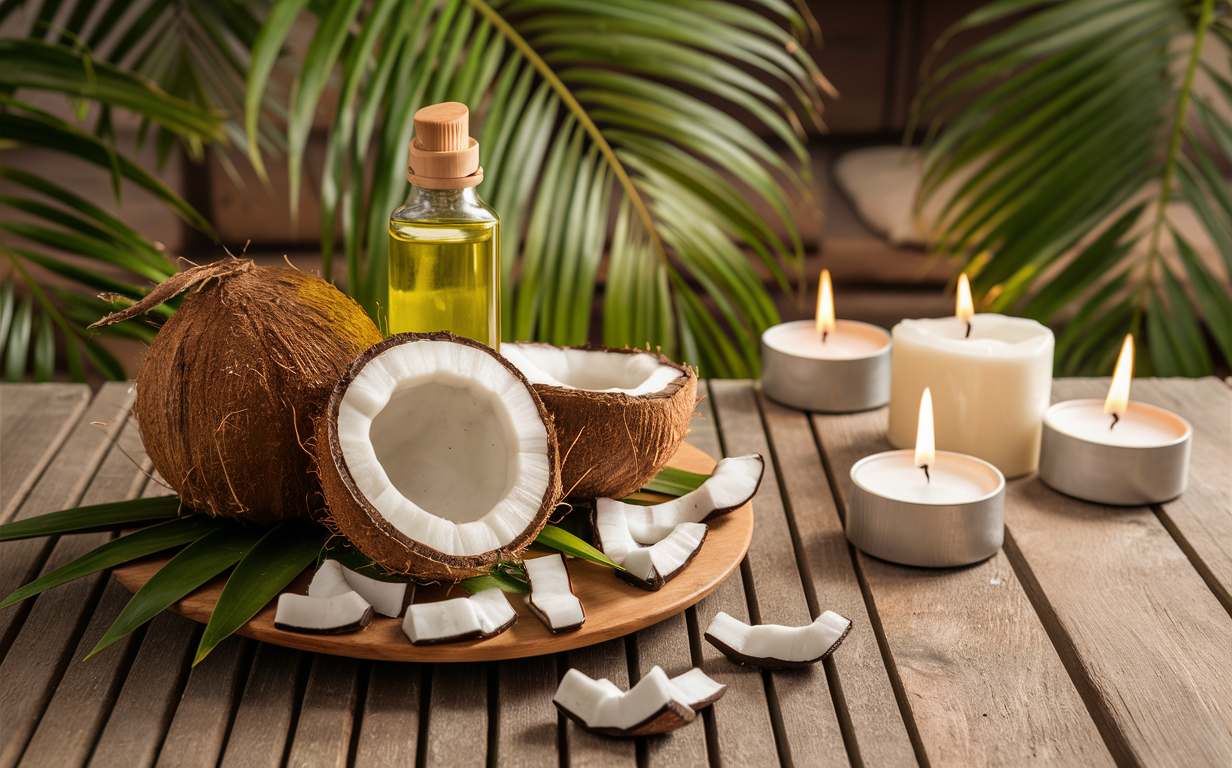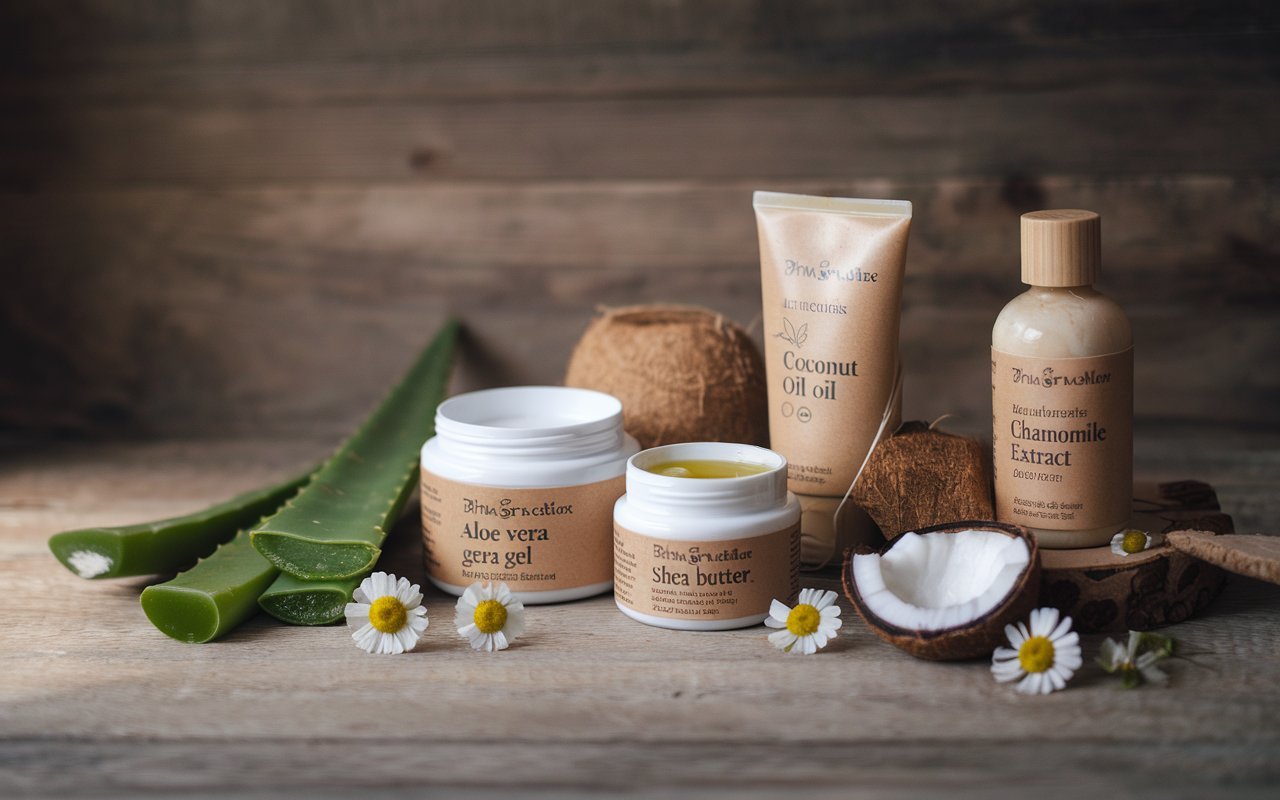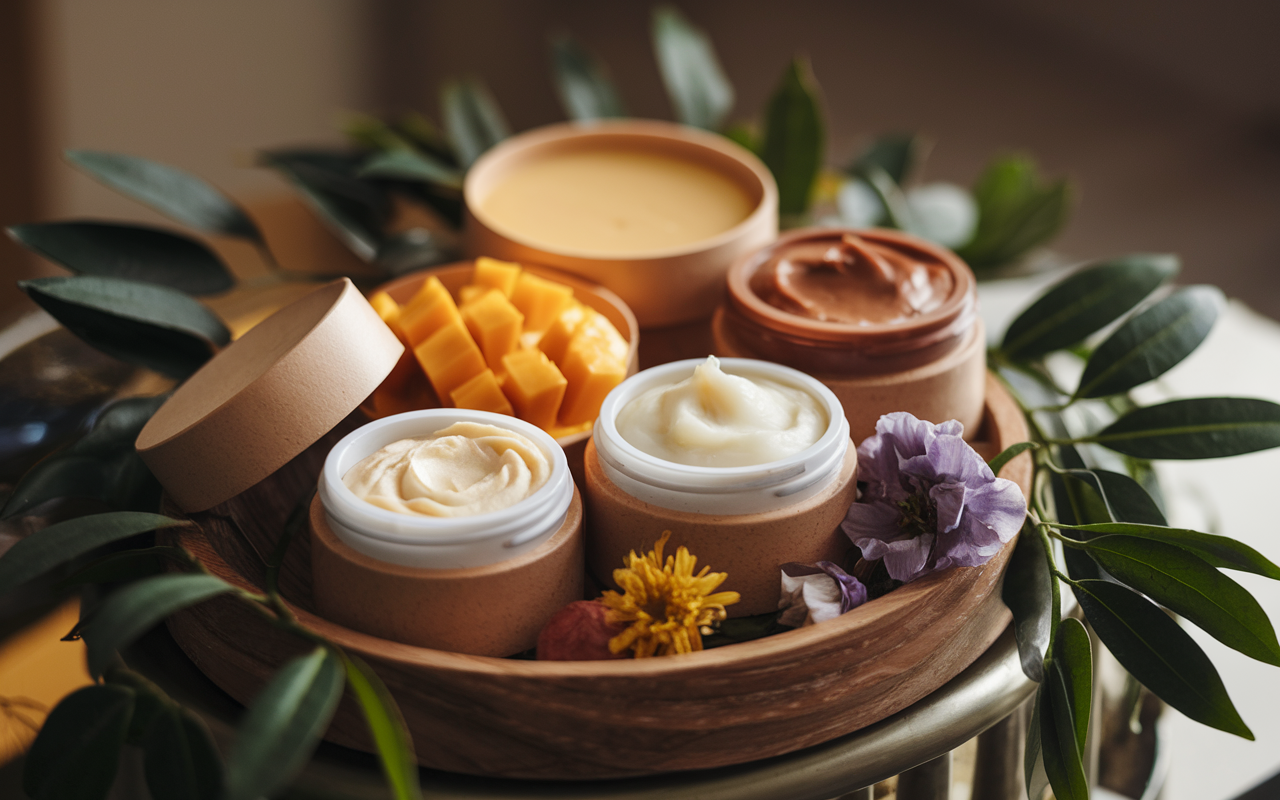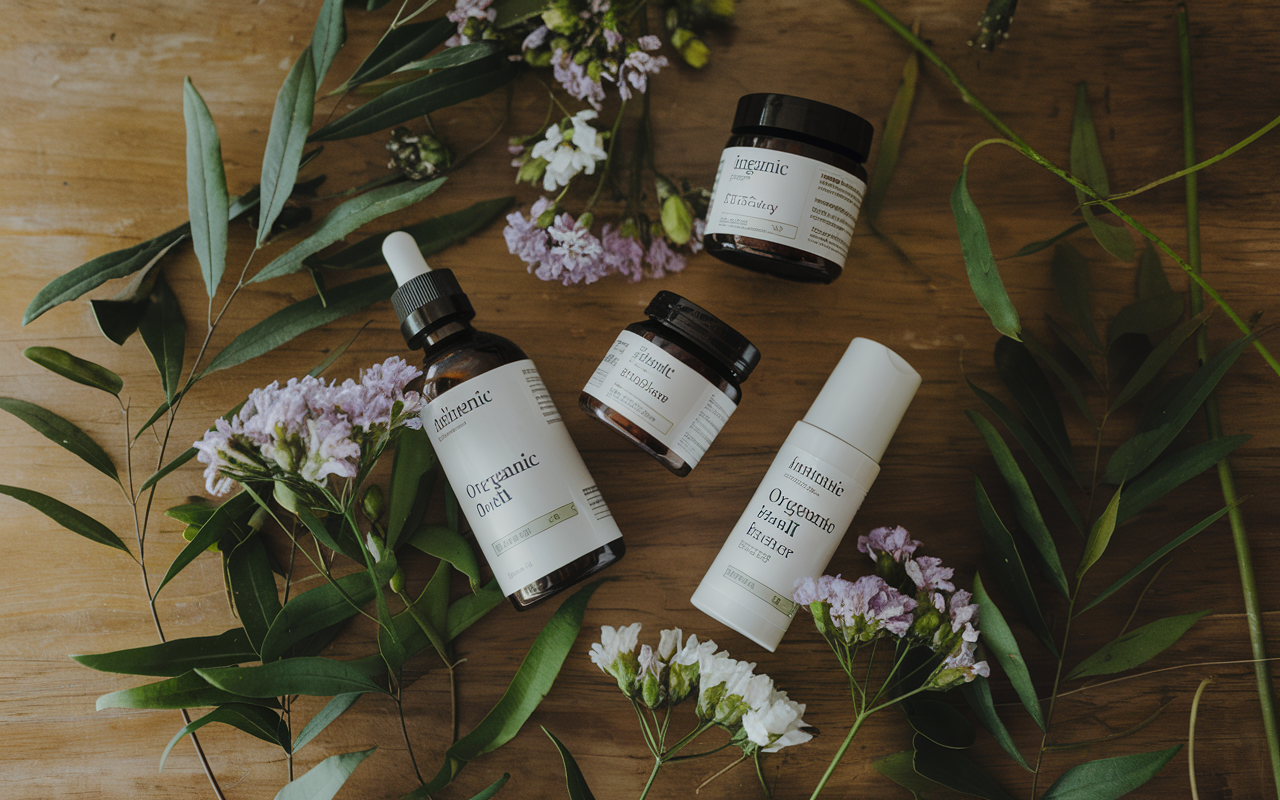
Introduction
Have you ever bought an “organic skin care” product, trusting it to be pure and safe, only to feel disappointed—or worse, betrayed—when it didn’t deliver the promised results? The rise of organic skin care is a blessing for those who want to treat their skin naturally, but it has also given birth to a wave of fake products. These counterfeits not only fail to provide benefits but can also harm your skin. Let’s dive deep into this issue, uncover how to identify fake organic skin care products, and ensure you’re making the best choices for your skin and the planet.
Why the Demand for Organic Skin Care Is Soaring
In recent years, more people have embraced organic skin care as part of a healthier lifestyle. Why? Because true organic products promise safety, sustainability, and results without harsh chemicals. They are crafted with love, using nature’s purest ingredients to nourish the skin. But with this booming demand comes a darker side—unscrupulous manufacturers flooding the market with fakes.
What Makes a Product Truly Organic?
Defining Organic Skin Care
Organic skin care products are made from ingredients grown without synthetic pesticides, fertilizers, or genetically modified organisms (GMOs). They are free from harsh chemicals and additives, focusing instead on natural goodness that benefits your skin and the environment.
Why Purity Matters
Authentic organic skin care offers your skin vital nutrients and antioxidants. These products heal, protect, and rejuvenate naturally, creating long-lasting results without compromising your health. Fake products, on the other hand, often contain synthetic fillers that can clog pores and irritate your skin.
The Alarming Rise of Fake Organic Skin Care
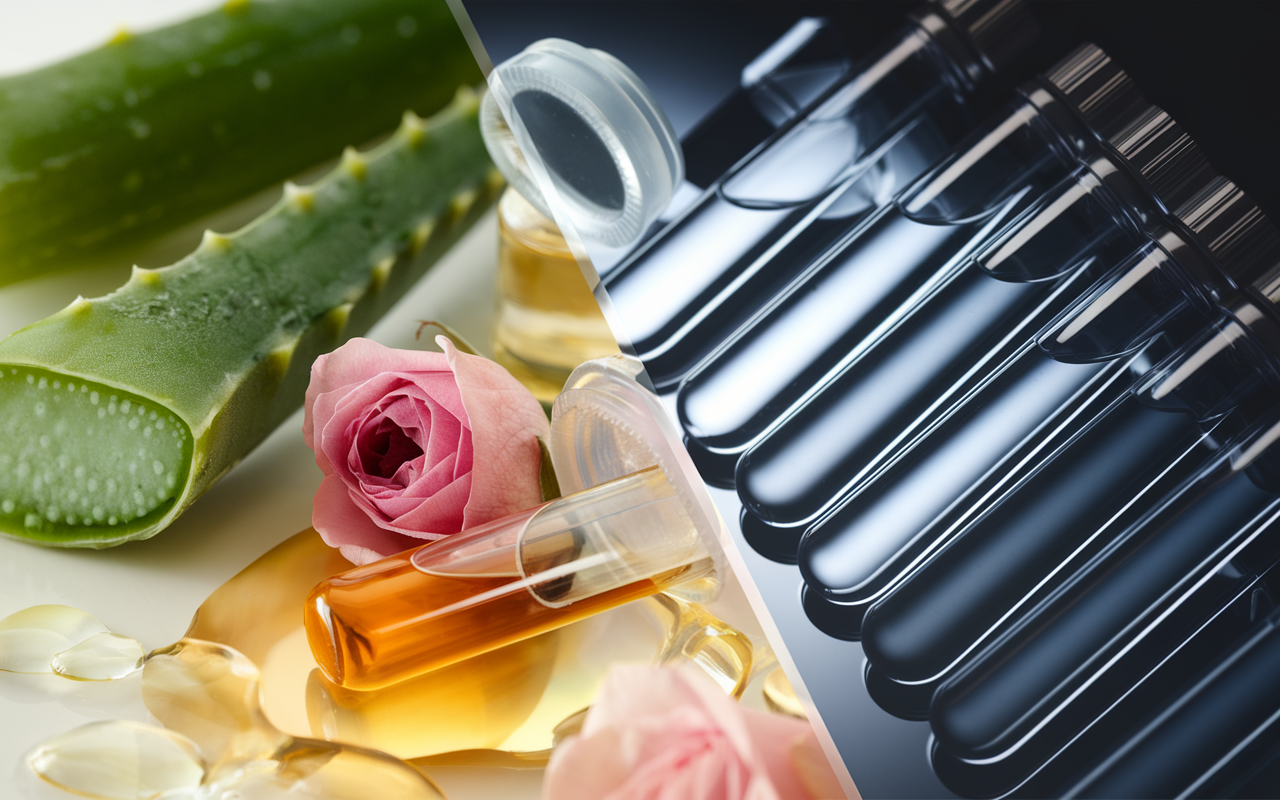
How Counterfeit Products Flood the Market
The organic skin care market is lucrative, and many counterfeiters want a slice of the pie. These fake products are designed to look genuine, often mimicking packaging and labeling to deceive consumers.
Why Fake Products Are Harmful
Using counterfeit organic skin care can lead to allergic reactions, irritation, and even long-term damage. Worse, these products often contain harmful chemicals that contradict the very principles of organic care.
Common Signs of Fake Organic Skin Care Products
1. Prices That Seem Too Good to Be True
Authentic organic skin care products require high-quality, sustainably sourced ingredients, which naturally come at a higher cost. If a product’s price seems unusually low, it’s a clear red flag. Ask yourself, how can something so affordable claim to be crafted from the purest nature’s bounty? Genuine organic skin care is an investment, not a bargain-bin find.
2. Lack of Recognized Certifications
Trustworthy organic skin care brands undergo rigorous checks and adhere to stringent standards to earn certifications like USDA Organic, COSMOS, or ECOCERT. These certifications ensure that the product is truly organic, free from harmful chemicals, and ethically produced. If a product lacks such certifications or if the label features vague, unverified claims, proceed with extreme caution. Counterfeit brands often avoid these standards to cut costs.
3. Vague Ingredient Lists
Transparency is the cornerstone of authentic organic skin care. Fake products often use misleading terms like “natural-inspired” or “organic-based” to sound credible, but they rarely provide a detailed breakdown of ingredients. Watch out for ingredient lists filled with complex, unpronounceable names or incomplete disclosures. Genuine products are proud to list their natural components and often mention the origin of key ingredients.
4. Poor Packaging Quality
Packaging speaks volumes about a product’s authenticity. Genuine brands invest in high-quality, eco-friendly, and well-designed packaging to reflect their values. If you notice misspelled words, inconsistent fonts, sloppy printing, or faded labels, it’s a warning sign. Counterfeit products often skimp on packaging, prioritizing profits over presentation.
5. Lack of Company Transparency
Authentic organic skin care brands take pride in their ethos and openly share their sourcing, production methods, and sustainability practices. They often feature detailed information about their mission, values, and contact details on their websites. Fake brands, on the other hand, tend to hide behind generic claims, provide minimal contact information, or lack an online presence altogether. If you can’t find reliable information about the company, think twice before buying their product.
6. Overly Bold Claims
Be wary of products that promise miraculous results, such as “instant wrinkle removal” or “overnight skin transformation.” Organic skin care works gently and gradually, nurturing your skin with natural goodness. Bold claims are often marketing gimmicks used by fake products to attract customers.
7. Strong Artificial Fragrances
Authentic organic skin care products rely on essential oils and natural extracts for their scent. If a product has an overpowering, chemical-like fragrance, it’s likely laced with artificial additives. These can irritate sensitive skin and are far from the gentle promise of true organic care.
8. Odd Texture or Color
Organic products typically have natural textures and colors that vary slightly due to the absence of synthetic stabilizers or dyes. If the product feels overly greasy, waxy, or has an unnaturally bright color, it may be a counterfeit. Trust your instincts—if it doesn’t look or feel right, it probably isn’t.
9. Unusual Expiry Dates
Genuine organic skin care products have shorter shelf lives because they are free from synthetic preservatives. If a product boasts an unusually long expiration period, it might contain hidden chemicals, contradicting its “organic” claims.
10. Lack of Social Proof
Check for customer reviews, testimonials, and endorsements from trusted sources. Fake products often lack a track record or have an unusually high number of suspiciously glowing reviews. Authentic brands have real followers who share their honest experiences.
11. Unclear Manufacturing Information
Authentic brands are transparent about where and how their products are made. Look for specific details such as the country of origin, manufacturing facilities, and ethical practices. If this information is absent or vague, it’s a strong indication of a counterfeit product.
12. Overly Glossy Marketing
Fake organic skin care brands often invest heavily in flashy advertisements rather than the quality of their products. If a brand focuses more on aesthetic marketing than providing valuable product details, it could be a sign of forgery.
By staying vigilant and looking for these tell-tale signs, you can protect yourself from falling into the trap of fake organic skin care products and ensure your skin receives the care it truly deserves.
How to Identify Genuine Organic Skin Care Brands
Do Your Research
Before purchasing, look up the brand. Check their website, read reviews, and see if they openly discuss their processes. Authentic brands are proud of their transparency.
Check for Certifications
Certifications are a hallmark of authenticity. Look for seals from reputable organizations like USDA Organic, ECOCERT, or the COSMOS Standard.
Examine the Label Carefully
True organic skin care products will list ingredients clearly, often accompanied by sourcing details. Be skeptical of products with incomplete or overly complex labels.
Seek Expert Advice
Dermatologists and skincare professionals can recommend reliable organic skin care brands that suit your skin type.
Ingredients to Watch Out For in Fake Organic Skin Care
1. Synthetic Fillers
One of the most common culprits in fake organic skin care products is synthetic fillers, such as silicones and synthetic waxes. While they may give a product a smooth, luxurious texture, they offer no real benefits to your skin and can clog pores or lead to long-term skin issues. Authentic organic skin care avoids fillers, focusing instead on potent, active ingredients that truly nourish your skin.
2. Artificial Fragrances
Imagine applying a product that smells wonderful but leaves your skin irritated or inflamed. That’s the risk with artificial fragrances, a staple in fake products. These synthetic scents are often made from harsh chemicals that can trigger allergies or sensitivities, especially for those with delicate skin. Genuine organic skin care relies on nature’s bounty—essential oils or natural extracts—to create pleasant, soothing aromas.
3. Hidden Chemicals
Sometimes the danger lies in what you don’t see. Ingredients like parabens, sulfates, and phthalates are often hidden behind complex, scientific-sounding names to mislead consumers. These harmful chemicals can disrupt hormones, dry out your skin, or even cause long-term health concerns. Authentic organic products steer clear of such toxins, ensuring that every ingredient contributes to your well-being.
4. Mineral Oil
Mineral oil is a petroleum by-product commonly found in fake organic products. While it may feel moisturizing, it creates a barrier on your skin that traps dirt and bacteria, potentially leading to breakouts. True organic skin care products opt for plant-based oils, such as jojoba or argan, which hydrate and nourish your skin naturally.
5. Synthetic Dyes
Brightly colored products might catch your eye, but their artificial dyes can wreak havoc on your skin. Synthetic dyes are often derived from coal tar or petroleum, making them anything but skin-friendly. Genuine organic products get their subtle hues from nature, like plant extracts or minerals, without compromising on safety.
6. Formaldehyde-Releasing Preservatives
Yes, you read that right—some counterfeit skin care products use preservatives that slowly release formaldehyde, a known carcinogen. These ingredients, often labeled under names like DMDM hydantoin or quaternium-15, are a far cry from the gentle preservation methods used in authentic organic skin care.
7. Alcohol-Based Ingredients
Denatured alcohol or isopropyl alcohol might make a product feel light and quick-drying, but they strip your skin of natural oils, leaving it dry and irritated. Authentic organic products use plant-based alternatives like aloe vera or hydrosols to balance and hydrate the skin.
8. Polyethylene Glycol (PEG)
Often used as thickeners or softeners, PEG compounds are derived from petroleum and may contain harmful impurities. Fake products rely on these to enhance texture, but real organic skin care brands use natural alternatives like shea butter or beeswax for a safer, more effective formula.
9. Phenoxyethanol
While phenoxyethanol is sometimes used as a preservative, its overuse in fake products can cause skin irritation, especially for sensitive skin types. Organic skin care brands usually opt for safer, eco-friendly preservation techniques like vitamin E or rosemary extract.
10. Synthetic Emulsifiers
Fake organic products often use synthetic emulsifiers to combine oil and water-based ingredients. These can disrupt your skin’s natural barrier and lead to irritation or dryness. Genuine products, however, rely on natural emulsifiers like lecithin or beeswax, which are gentle and effective.
11. Cheap Oils and Butters
Counterfeit brands often substitute high-quality oils like rosehip or marula with cheap alternatives, such as soybean or palm oil, that lack the same skin-nourishing properties. Authentic organic products pride themselves on sourcing premium, sustainably harvested oils and butters to deliver maximum benefits.
12. Plastic Microbeads
Though banned in many countries, plastic microbeads can still appear in counterfeit exfoliating products. Not only are they harmful to the environment, but they can also cause micro-tears in your skin, leading to irritation and sensitivity. Organic brands use biodegradable exfoliants like oatmeal or sugar instead.
By learning to identify these harmful ingredients, you can protect your skin and ensure that your organic skin care routine is built on trust and authenticity.
The Role of Certifications in Ensuring Authentic Organic Skin Care
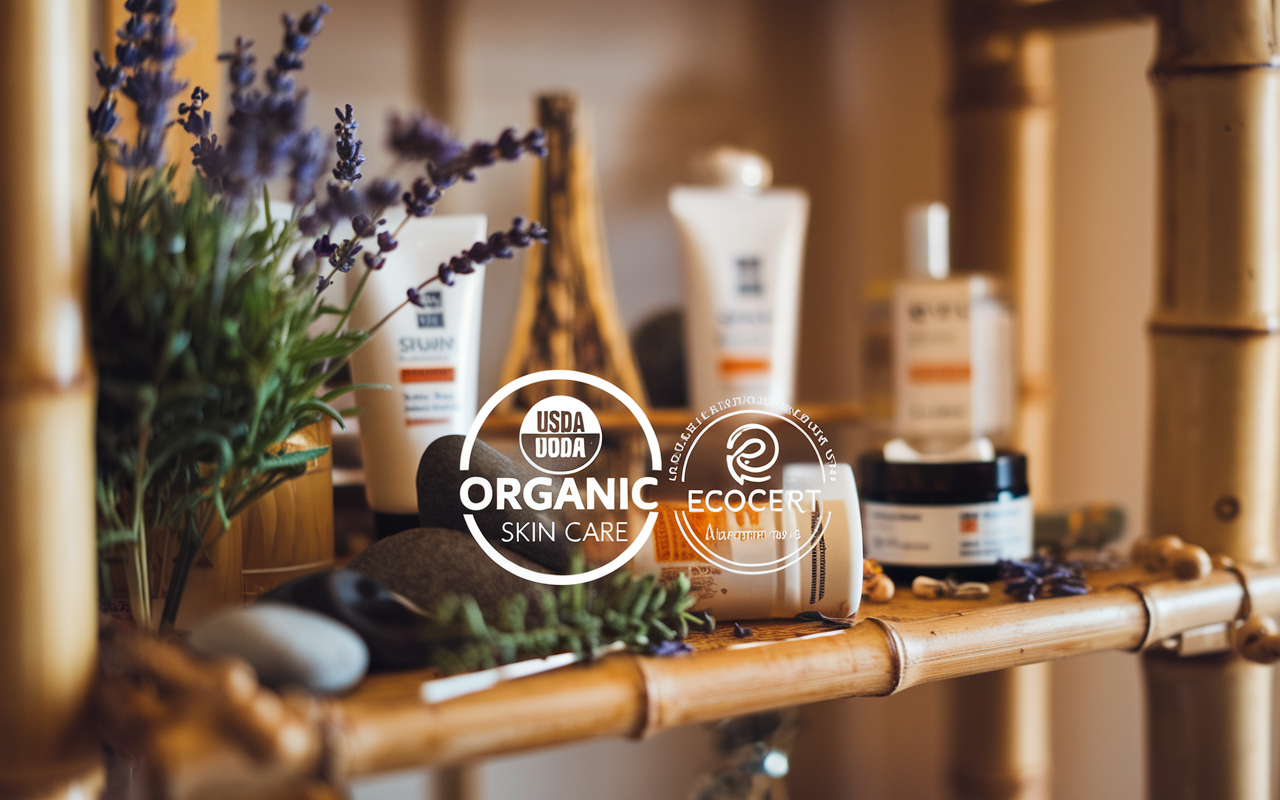
Recognized Certification Bodies
Certifications from bodies like USDA Organic or COSMOS ensure that the product meets stringent organic standards.
How Certifications Protect Consumers
Certification processes are thorough, examining every step from ingredient sourcing to production. This ensures you’re buying a product that’s genuinely organic.
Shopping Tips to Avoid Fake Organic Skin Care Products
1۔ Stick to Reputable Retailers
Purchase from trusted stores or the brand’s official website. Avoid third-party sellers offering steep discounts.
2۔ Read Reviews and Testimonials
Online reviews can reveal a lot about a product’s authenticity. Watch for patterns of complaints or negative feedback.
3۔ Be Skeptical of Heavy Discounts
Counterfeit products often lure buyers with low prices. Remember, quality organic skin care is an investment in your health.
The Consequences of Using Fake Organic Skin Care
1. Harm to Your Skin
Your skin is your body’s first line of defense, and it deserves the best care. Unfortunately, counterfeit products are loaded with harmful chemicals, artificial additives, and low-quality ingredients that can wreak havoc on your skin. From breakouts and rashes to more severe issues like chemical burns or long-term sensitivity, the damage can be profound. Instead of nurturing your skin, these fake products strip away its natural barrier, leaving it vulnerable to environmental stressors and premature aging. Isn’t it heartbreaking to think you’re doing something good for your skin, only to harm it unknowingly?
2. Risk of Allergic Reactions
Fake organic skin care products often contain hidden allergens or irritants. Without proper testing or transparency, they can lead to redness, itching, swelling, or even painful allergic reactions. For those with sensitive skin, these effects can escalate into chronic skin conditions like eczema or dermatitis. What’s worse, you might never be able to pinpoint the exact culprit, leading to prolonged frustration and discomfort.
3. Environmental Damage
When you choose organic skin care, you’re not just caring for your skin—you’re making a statement about protecting the planet. But fake products betray this trust. They often contain unsustainable ingredients, harmful chemicals, and plastic-based fillers that pollute water sources and harm delicate ecosystems. Imagine a soothing organic face wash turning into a pollutant in rivers and oceans—it’s a heartbreaking betrayal of nature’s trust.
4. Waste of Money and Time
Investing in fake products is not only harmful but also a waste of your hard-earned money. Counterfeit items don’t deliver the promised results, forcing you to spend more on remedies or replacements. Worse yet, the time you spend researching and recovering from the damage they cause is irreplaceable.
5. Health Risks Beyond the Skin
Your skin is highly absorbent, meaning the harmful chemicals in fake products can enter your bloodstream. Over time, these toxins can accumulate, potentially disrupting hormones, damaging internal organs, or even increasing the risk of severe health conditions. What was supposed to be a step towards wellness can unknowingly jeopardize your overall health.
6. Emotional Toll
The betrayal of using a fake product can take a heavy emotional toll. When your skin suffers damage or your environmental ethics are compromised, it’s easy to feel disheartened or even angry. Skincare should be an act of self-love, but counterfeit products rob you of that joy and trust, leaving you feeling let down.
By understanding these consequences, you can empower yourself to make informed decisions, ensuring that your commitment to authentic organic skin care truly benefits you and the world around you.
Why Supporting Authentic Organic Skin Care Matters
Encouraging Ethical Practices
By choosing genuine organic products, you’re supporting brands that prioritize fair trade, ethical labor, and sustainability.
Nurturing the Planet
True organic skin care brands focus on eco-friendly practices, ensuring the health of our planet for future generations.
Conclusion
Your skin deserves care, not compromise. By learning to spot fake organic skin care products, you empower yourself to make informed choices that benefit both your skin and the planet. Authentic organic skin care is about more than beauty—it’s about integrity, sustainability, and love for yourself and the environment. Stay vigilant, ask questions, and invest in products that truly care for your skin.
FAQs
Q: What are the main certifications for organic skin care?
A: Look for USDA Organic, COSMOS, and ECOCERT certifications, as they guarantee the product meets strict organic standards.
Q: Can fake organic skin care products cause long-term harm?
A: Yes, counterfeit products can lead to allergies, rashes, and even chronic skin conditions.
Q: How can I identify a genuine organic skin care product?
A: Check for certifications, transparent ingredient lists, and a reputable brand reputation.
Q: Why are organic skin care products more expensive?
A: Authentic organic products use high-quality, sustainably sourced ingredients, which contribute to their higher cost.
Q: Are there apps to verify organic skin care products?
A: Yes, apps like Think Dirty or EWG’s Skin Deep can help you check a product’s authenticity and ingredient safety.
Also Visit:
Tips for Finding Affordable Organic Skin Care Products 2024
Can Organic Skin Care Help with Aging? Here’s What You Need to Know 2024
